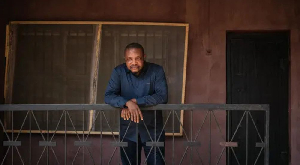African Development Bank Group President Dr. Akinwumi Adesina urged for a coalition of public commitment and private sector finance to awaken Africa’s “staggering” agricultural potential, setting the stage for the continent to feed itself and contribute to global food security.
Adesina made his call during the World Economic Forum “Food and Water for All” panel discussion in Riyadh.
He made an impassioned plea for greater cooperation between governments, public and private sector to transform agriculture production in Africa to allow it to “feed the world.”
During the panel, co-organised with CNN International, global leaders and experts agreed Africa has the land and water to achieve this lofty ambition but lacked significant investments and regulatory frameworks to properly develop abundant unused land and vast water resources.
The Bank Group president stressed Africa needed a major across the board increase in infrastructure investment in this sector to around $78 billion by 2050.
“The potential is undeniable, but nobody eats potential… We have to unlock that potential,” he declared. For that, he said private sector was essential but coupled with the creation of well run and administered public regulatory bodies.
Overall, Africa has plenty of water but some of it is underground. Tapping into that potential and making far wider use of modern irrigation techniques, included those offered by AI (artificial intelligence) are key strategy targets.
“Africa’s potential is undeniable, but nobody eats potential… We have to unlock that potential,” said African Development Bank Group President, Dr. Akinwumi Adesina.
“We need more of the private sector, we have weak and poorly functioning utilities, we need to improve governance,” he said, adding that significant concerted action will help create an agricultural sector worth some 1.3 trillion dollars by 2030.
The panel delved into how targeted investment and advanced technologies could address the pressing needs of 2.4 billion people without adequate food and 2.2 billion lacking safe drinking water across the world, showcasing Africa’s role in this global challenge.
Adesina also stressed the importance of small-scale farmers and the need to provide them with new varieties of heat-tolerant and water-efficient varieties. “Access to new technologies comes at a price but we have shown at the Bank the amazing effect climate efficient varieties can make,” he said.
The Bank President said the Bank has invested $3 billion in water projects alone in the last three years, connecting 15 million people to water and 17 million to sanitation, but millions still faced shortages. He drew attention on initiatives like the African Water Facility and called for more similar approaches. The African Water Facility, hosted by the Bank, provides grants and expert technical assistance to prepare bankable innovative water projects ready to attract private investment throughout Africa.
Zambia’s Minister of Finance and National Planning,Situmbeko Musokotwane, appealed to global investors: “We have the land. We also have abundant water. What we need are financial resources and management expertise to transform these assets into productive agriculture.”
“We have the land. We also have abundant water. What we need are financial resources,” said Situmbeko Musokotwane, Zambia’s Minister of Finance and National Planning.
Musokotwane highlighted the vital role of technology in maximizing resource use, particularly in agriculture, to secure food for the world.
Echoing this sentiment, Chief Executive UPL Ltd,Jai Shroff, shared insights from recent agricultural innovations in Zambia.
“We introduced a shift from corn to sorghum, which is more drought-tolerant. The results were outstanding with sorghum achieving 100 per cent yield while surrounding corn crops perished,” Shroff explained.
He further advocated for large-scale farming as a vehicle for economic transformation, as witnessed in Brazil, emphasizing the need for secure land rights to attract long-term investments. However, Adesina provided a caveat, reminding attendees of the importance of smallholder farms, which produce a significant portion of Africa’s food.
“While we push for modernization and scale, we must not overlook the smallholder farmers who are the backbone of our rural economies,” Adesina stated.
Business News of Wednesday, 1 May 2024
Source: thenationonline.ng













